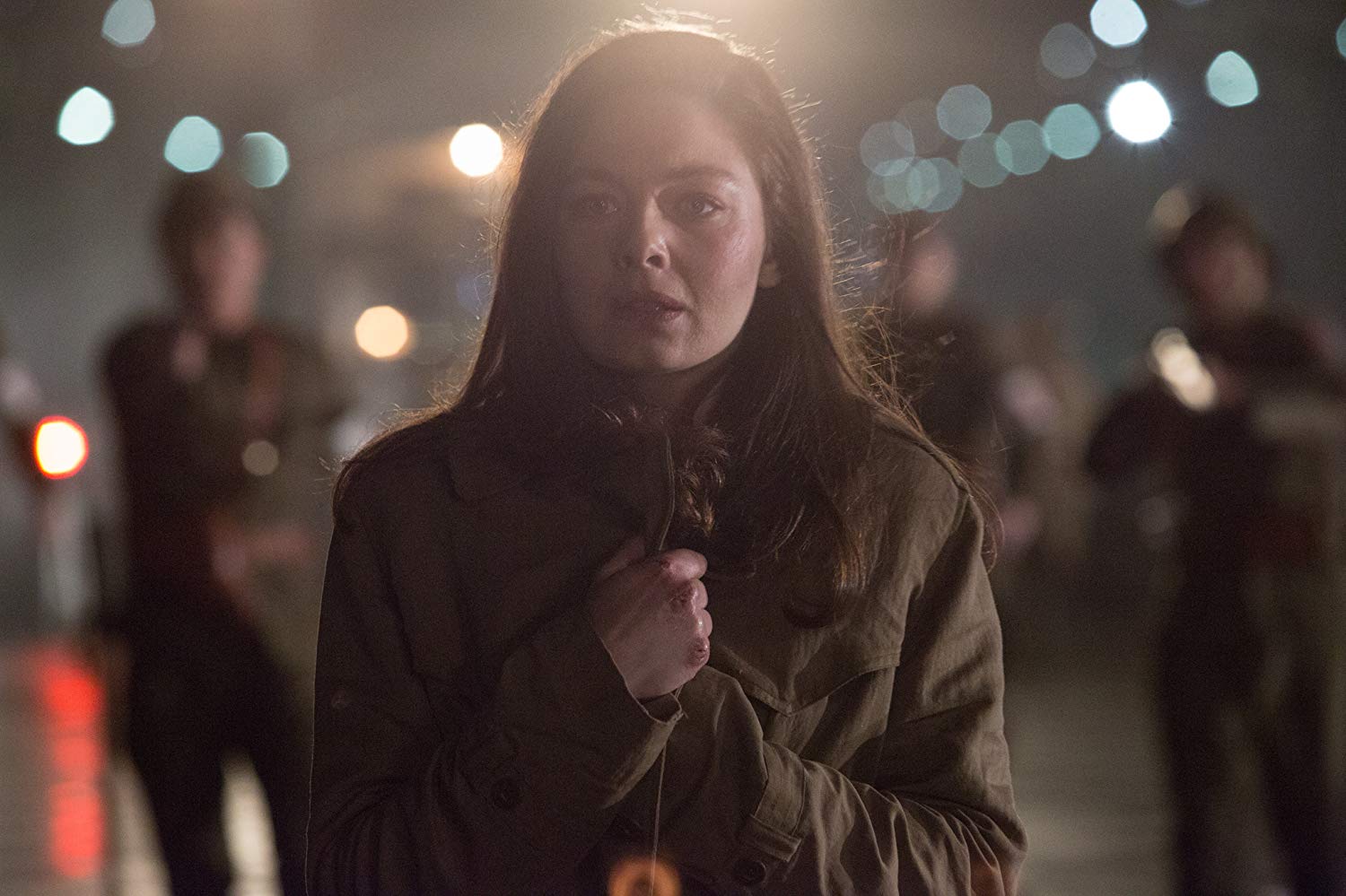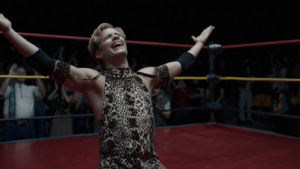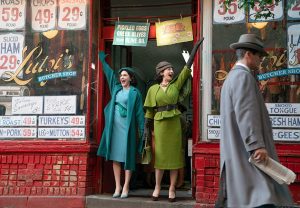The final episode of season three of The Man in the High Castle shows young adults marching through the streets of New York, carrying torches and chanting “blood and soil.” It’s impossible not to catch the reference to the Charlottesville march and riots of last year. The worst, and best, part of the show, is how terrifyingly similar parts of it are to modern-day white supremacy. This most recent season was its most thrilling yet, for the aforementioned reason and for many more.
The series, based off of a Philip K. Dick book of the same title, takes an alternative history approach to post-World War II America. The Nazis won the war, and the United States is split between Japanese and German rule, each taking a separate coast. The world is simultaneously under strict control and in total chaos. People are murdered on the streets for speaking out against the government in any way, shape, or form. There is a policy of eugenics so that no Jew, no person with a deformity, no person outside of Aryan standards, is allowed to live.
One of the many reasons it is such a masterful work of television is the cast of the show. All of the acting is impeccable. Alexa Davalos, who plays the main character Juliana Crain, has a signature secretive and subdued attitude. She’s quiet, but incredibly confident and powerful. There’s also Rufus Sewell, who plays high-ranking North American Nazi official John Smith. His performance as a cruel, yet troubled “Reichsmarshal,” personal puppet of Hitler and Himmler, is haunting and incredibly believable.
The most recent season delves deeper into the sci-fi realm, exploring the idea of parallel worlds and the ability for people to travel between them. There’s always been a hint at other worlds throughout the show—it centers around the films that are collected by the titular Man (Stephen Root), films that show the allied powers winning the war. They show the 1950s and 60s America that the viewer actually knows, but are so foreign and seemingly falsified to those within the reality of the plot. Juliana is a messenger for these films, which are a centerpiece of resistance efforts.
One of the most fascinating parts of the show is the character dynamics. Juliana has complicated relationships with John, with the Japanese Trade Minister Tagomi (Cary-Hiroyuki Tagawa), and with Joe Blake (Luke Kleintank), a man who straddles the Nazi life and the possibility for rebellion. Throughout the show, it’s unclear where his allegiances really lie; whether he has bigger plans or is merely a small cog in the greater fascist machine.
It’s a depressing, violent, and hard to watch piece of television, but that doesn’t mean it shouldn’t be watched. It is also brilliant, full of suspense, and unlike anything else.
The usual progression of television has a slow start that billows into a tremendous second and third season, or a great first season that is followed by less successful follow-ups. However, The Man in the High Castle has been constantly phenomenal. Each season stays true to the overarching narrative, but brings in new twists and plot lines that keep it from getting stagnant. Season three circles around Juliana’s discovery of a Nazi project in the Poconos in which scientists are trying to manufacture a way to transport people to these parallel worlds. It’s a fascinating and well-constructed storyline that still comes back to the theme of whether or not history will become realigned.
What is probably the most captivating question the show presents is the idea of life and death, and whether death is a true end. In the final episode of season three, The Man in the High Castle tells John that the only way for a person to travel between worlds is if another version of themselves has died in the world they are trying to get to. People keep reappearing in Juliana’s life, both through traveling and through sheer coincidence. Her ex-lover, Frank (Rupert Evans), who she believed to be dead, turns out to be alive and hiding out in a Catholic community in Colorado. Her sister, Trudy (Conor Leslie), whom she saw shot dead in the street, reappears in her life, only to transport back to another world early in the series. It’s as if the show is trying to say that death is only a beginning, which I know is a cliché, but is a cliché that is addressed in a way that’s never been seen before.
For those who haven’t seen the show, it will suck you in, with all of the insane cliff hangers and the mix of horror, drama, and thrills that force the viewer to keep their eyes wide open the whole time. It’s historical fiction mixed with elements of sci-fi and horror, making it so unique in comparison to what else is out there in the realm of television. And for the era we’re in, with authoritarianism on the rise worldwide, it’s a must-watch. It may be a terrifying piece of fiction, but it’s got some truth to it, too.




